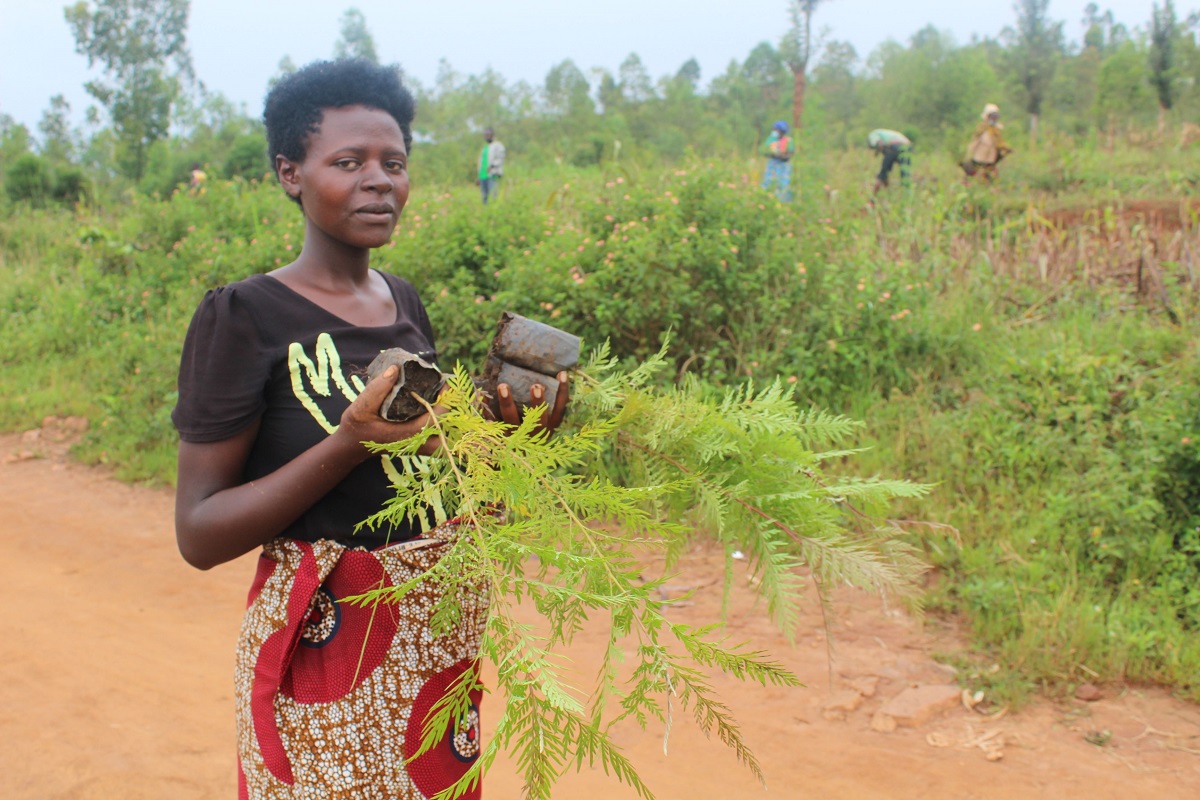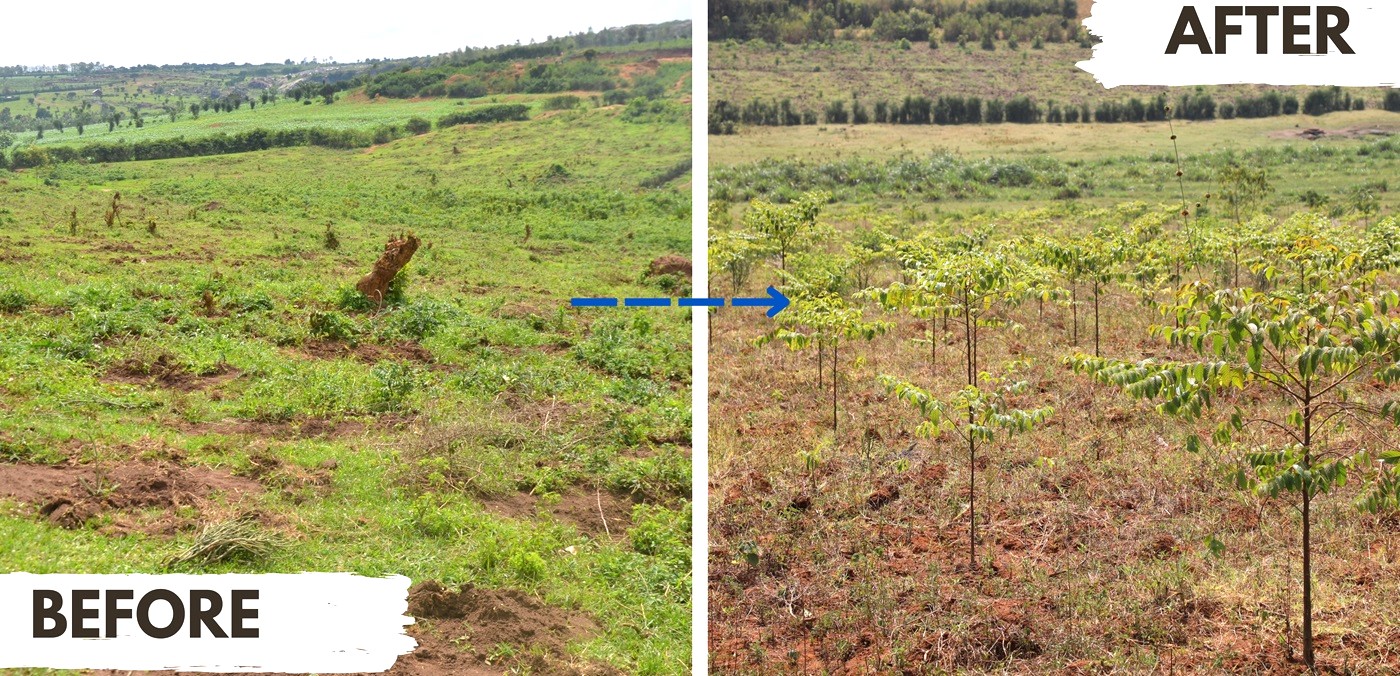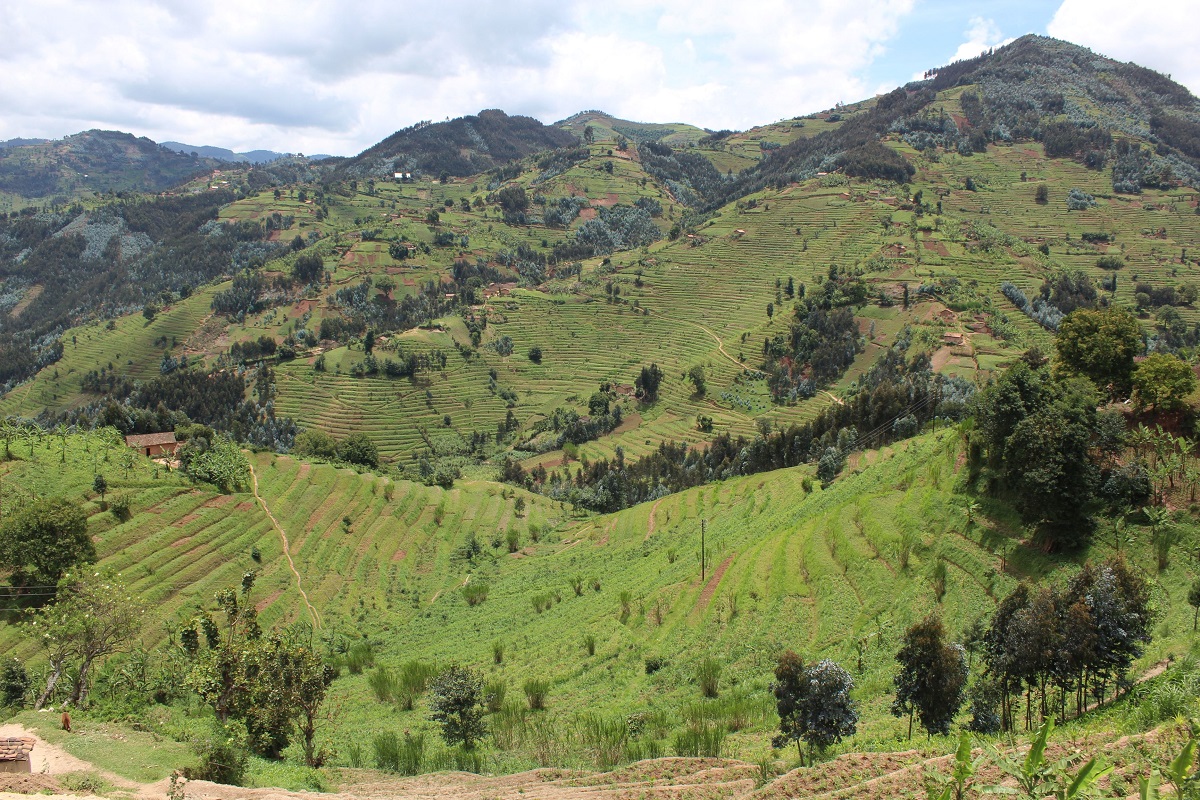IUCN convened National High Level Dialogue on Sustainable Agriculture in Rwanda
Kigali - Rwanda, 27 April 2023 - The International Union for Conservation of Nature (IUCN), Rwanda’s Ministry of agriculture and Animal Resources (MINAGRI), the Ministry of Environment (MoE), Rwanda Agriculture and Animal Resources Development Board (RAB), Rwanda Environment Management Authority (REMA), Universities, Academia, Media, NGOs, Women and Youth and other partners in agriculture and conservation sectors with financial support from IKEA Foundation convened a National High Level Dialogue on Sustainable Agriculture in Rwanda with the aim of accelerating sustainable agriculture practices in Rwanda.
Land health has proven to be an effective concept for fostering dialogue between actors in the agriculture and conservation sectors. Improving land health through sustainable agriculture is a significant stepping-stone required for transformation of the wider food-agriculture system in Rwanda.
With Nature Based Solutions (NbS) being at the forefront, Rwanda seeks to promote agriculture practices that are protecting the environment and biodiversity, according to researchers and other scientists who convened in Kigali to discuss Sustainable agriculture.
As explained by Ms. Kaori Yasuda, IUCN Rwanda Country Representative, Rwanda is prioritizing mainstreaming nature conservation into major economic activities, such as agriculture, by deploying NbS towards green growth.
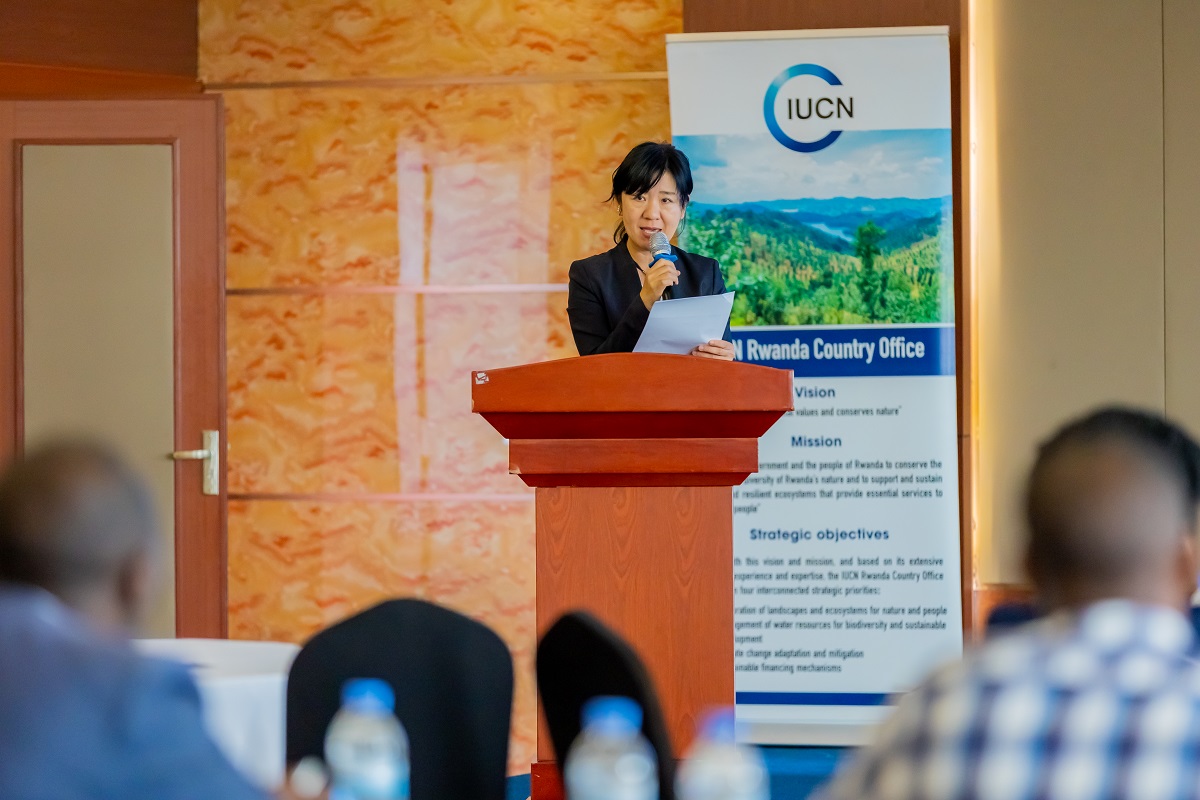 Photo: IUCN Rwanda Country Representative, Ms Kaori Yasuda addresses keynote during National High Level Dialogue on Sustainable Agriculture in Rwanda
Photo: IUCN Rwanda Country Representative, Ms Kaori Yasuda addresses keynote during National High Level Dialogue on Sustainable Agriculture in Rwanda
Ms. Kaori who was speaking at National High Level Dialogue convened in Kigali on 27th April 2023 to discuss sustainable agriculture revealed that “In this regard, as IUCN, we prioritize that transitioning to sustainable agriculture by improving land health, conserving biodiversity, and the future viability of food production for farmers, we focus on demonstrating how NbS can boost on farm crop productivity and biodiversity and conserve biodiversity in agricultural landscapes.”
“This can be achieved through initiating the platform like today’s experience and knowledge harmonization of understanding and dialogue on promoting NbS in the Rwandan context.” She added.
Ms. Kaori explained that IUCN uses global standards for NbS as a framework for designing, implementing and scaling up NbS solution interventions for multiple societal benefits for local communities and farmers.
“Finally, we promote sustainable agriculture at the policy level, through embedding NbS for building resilient landscape management.” She added.
According to the Permanent Secretary in the Ministry of Agriculture and animal resources, Dr. Olivier Kamana, with the current development focus of the food and agriculture sector of many developing and emerging economies, including Rwanda, it is impossible to expand arable land without putting more effort into food security as well as advance sustainable and commercial agriculture.
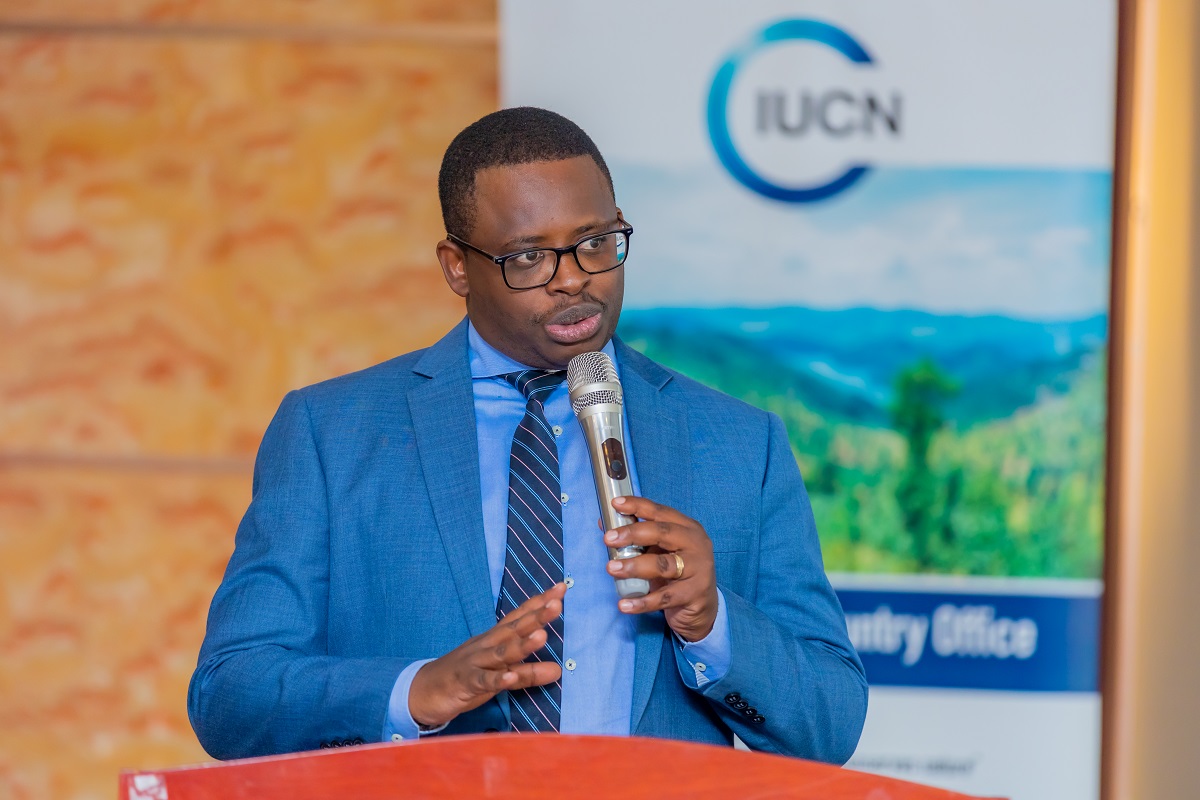 Photo: Permanent Secretary in the Ministry of Agriculture and animal resources, Dr. Olivier Kamana officially opened National High Level Dialogue on Sustainable Agriculture in Rwanda
Photo: Permanent Secretary in the Ministry of Agriculture and animal resources, Dr. Olivier Kamana officially opened National High Level Dialogue on Sustainable Agriculture in Rwanda
He explained that in past experience, it has also shown that production can be increased in a more sustainable way when environmental protection is integrated into agriculture value chain development such as agroforestry, conservation agriculture, erosion control, rehabilitation of degraded forests, and concurrent reclamation of marshlands.
“With that experience, we need to change the direction of the loss of biodiversity in agricultural areas (above and underground) to achieve sustainable production systems.” Dr. Kamana said.
“Agricultural activities through improper production techniques should be impeded for better land use, reduce biodiversity loss, and improve ecosystem services such as pollination, pest control, and water quality and climate regulation.” He added.
Sustainable agriculture as a response to food security
According to Dr. Jules Rutebuka, IUCN Regional Sustainable agriculture Programme Officer, “Among the challenges we have in SDGs is food security and food insecurity, we need to combat it and bring improved livelihoods in every fertile land.”
Apart from saving biodiversity, Dr. Rutebuka added that “IUCN is also prioritizing sustainable agriculture to improve the land health of the soil, the land in agriculture, and improve also the production because we want to feed our people”
For the NbS in Rwanda’s context, Dr. Rutebuka explained that its implementation should start with what farmers need.
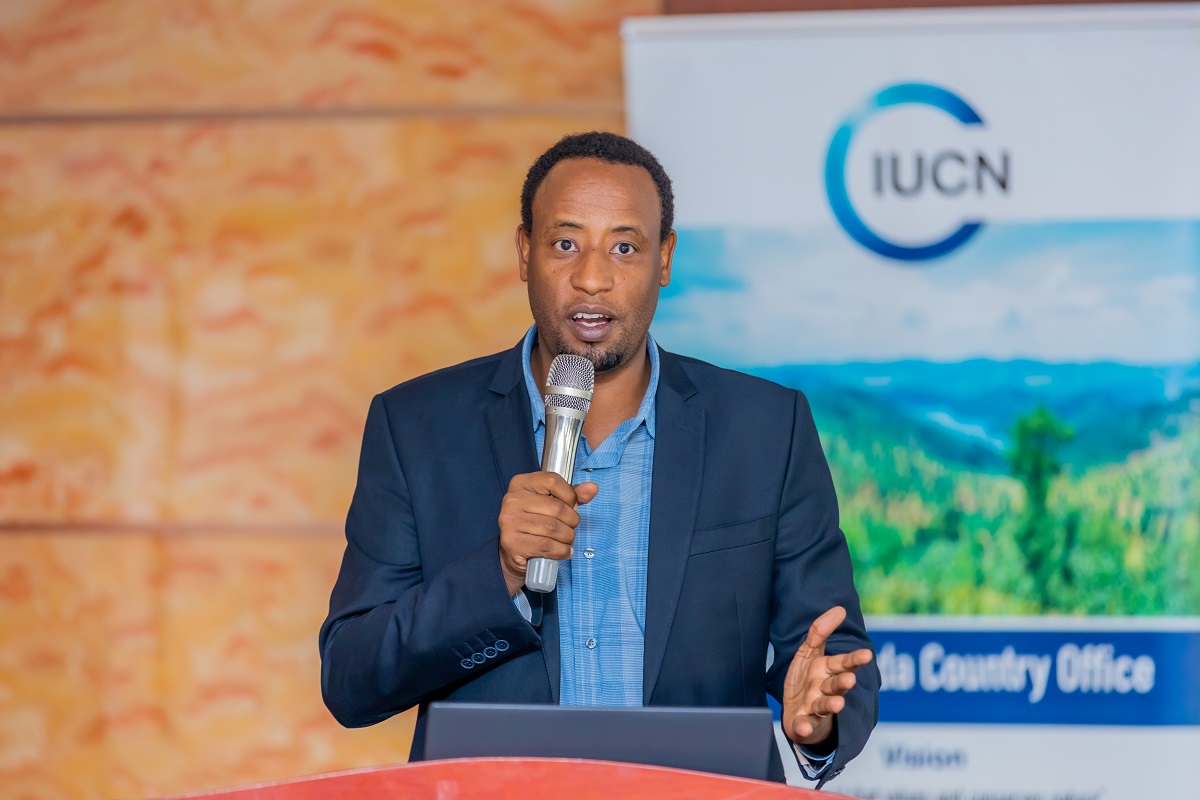 Photo: Dr. Jules Rutebuka, IUCN Regional Sustainable agriculture Programme Officer during his presentation on NbS
Photo: Dr. Jules Rutebuka, IUCN Regional Sustainable agriculture Programme Officer during his presentation on NbS
He said “farmers need soil with organic fertilizer because they can get manure fertilizer, but they need organic fertilizer sources. If they get open sources, we have to look for different alternatives to get organic fertilizer sources and one of the solutions is to have that diversified agroforestry system.”
Apart from organic fertilizers, he also noted that farmers need to practice crop rotation system, crop covers and other technologies of conservation agriculture such as mulching, crop residue retention, and use of improved vegetated fallows, among others.”
“But primarily in Rwanda, farmers need agroforestry,” He added.
This was also emphasized by Dr. Concorde NSENGUMUREMYI, Director General of Rwanda Forestry Authority who reminded that in Rwanda, “We understand that our shared prosperity depends on our relationships with the nature and that is why the environment sits at the heart of our vision 2050 Climate Action Plans, green growth and climate resilient strategies.”
“So, one of the best practices we are doing is an agroforestry which is really recognised to contribute to sustainable development of intensified and productive agriculture through the provision of ecosystem services and diversification of the production.” Dr. Nsengumuremyi said.
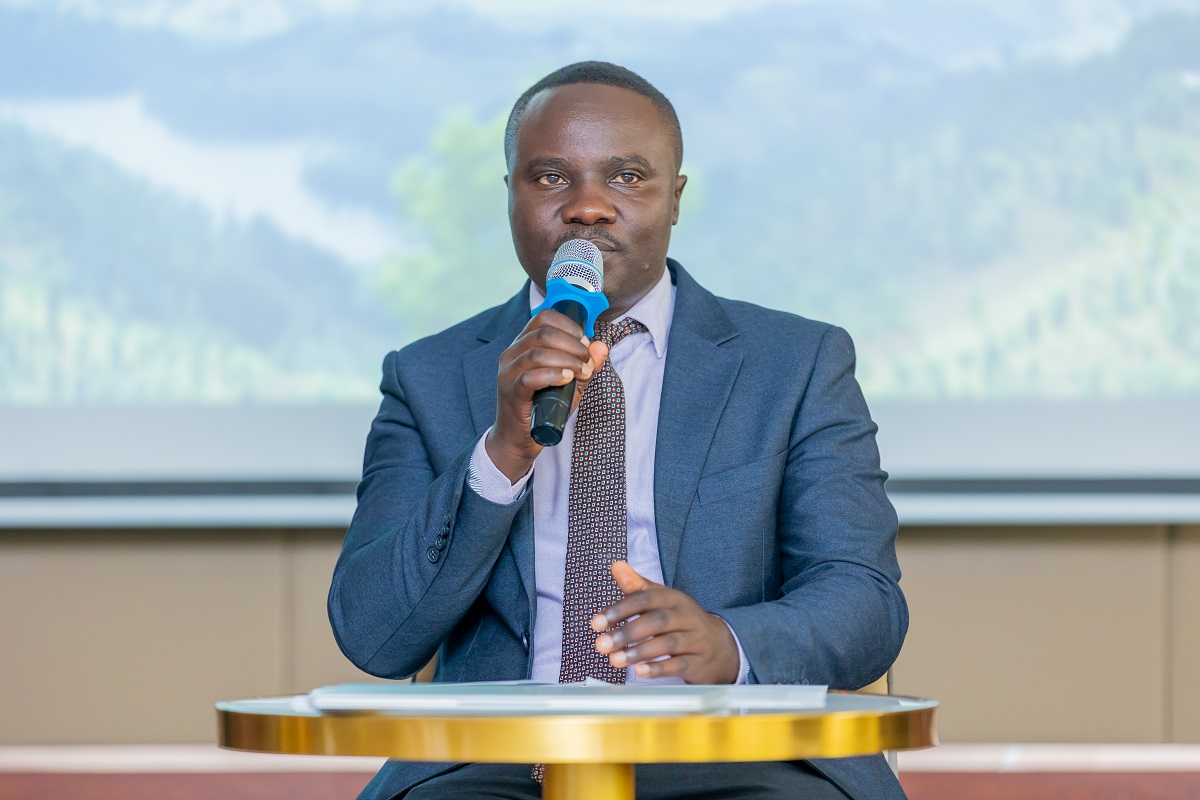 Photo: Dr. Concorde Nsengumuremyi, Director General of Rwanda Forestry Authority addresses keynote during National High Level Dialogue on Sustainable Agriculture in Rwanda
Photo: Dr. Concorde Nsengumuremyi, Director General of Rwanda Forestry Authority addresses keynote during National High Level Dialogue on Sustainable Agriculture in Rwanda
He congratulates IUCN for selecting Rwanda as one of the priority countries for conservation.
“I hope you will all benefit from this information that will be shared and I encourage each one to contribute to today’s dialogue on sustainable agriculture. Together, we can all work together toward accelerating the global transition to sustainable agriculture across the entire country.” He concludes.
By providing global leadership on land health, IUCN will pave the way for future progress in other, more controversial issues related to agriculture and biodiversity loss. The initiative will build consensus between conservation and agriculture actors over the conservation benefits of sustainable farming, the value of these benefits to society, as well as possible trade-offs, and suitable rewards and other incentives that can promote environmental stewardship.
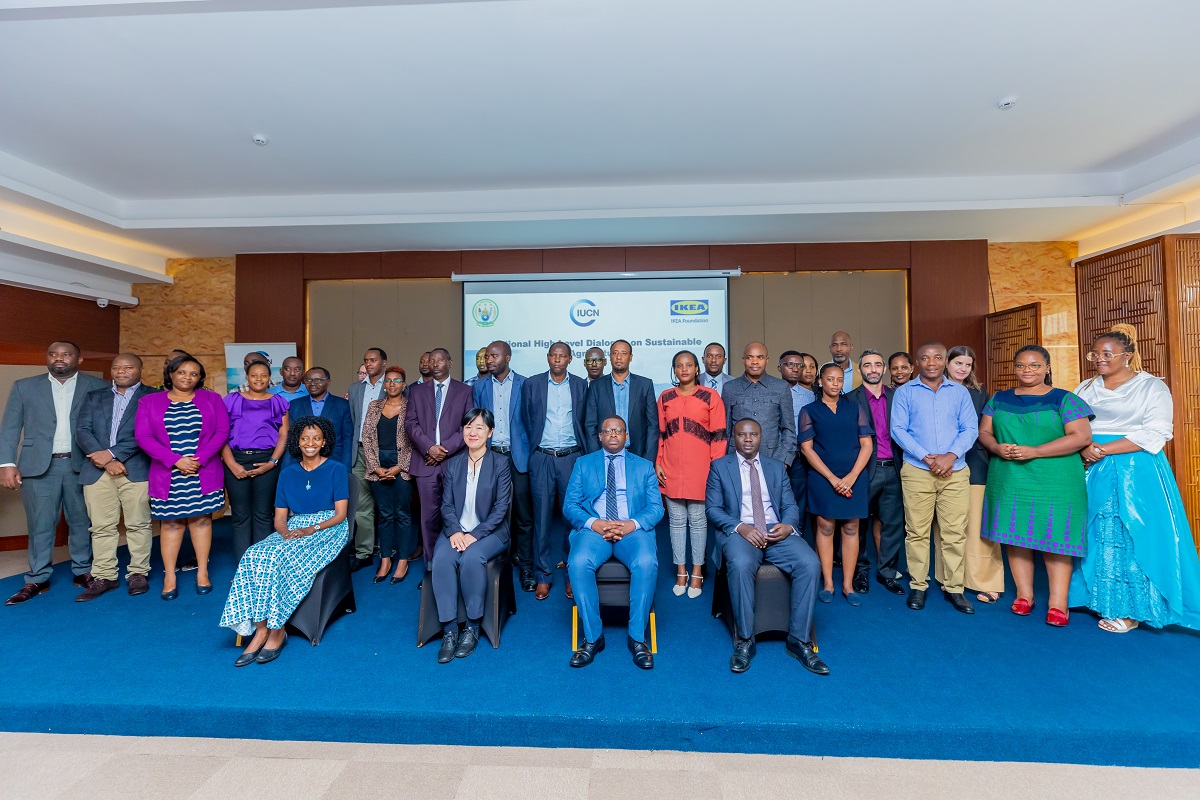 Photo: National High Level Dialogue on Sustainable Agriculture brought together different actors in agriculture and conservation in Rwanda
Photo: National High Level Dialogue on Sustainable Agriculture brought together different actors in agriculture and conservation in Rwanda
All photos can be found here
Media Coverage
Top Africa News: MINAGRI, MoE, IUCN, other partners in a joint move to accelerate Sustainable Agriculture
Flash TV News: IUCN IHURIJE HAMWE IMPUNGUKE MU BIGANIRO BIGAMIJE KUBUNGABUNGA UMUSARURO W'UBUHINZI N 'IBIDUKIKIJE
Disclaimer
Opinions expressed in posts featured on any Crossroads or other blogs and in related comments are those of the authors and do not necessarily reflect the opinions of IUCN or a consensus of its Member organisations.
IUCN moderates comments and reserves the right to remove posts that are deemed inappropriate, commercial in nature or unrelated to blog posts.
